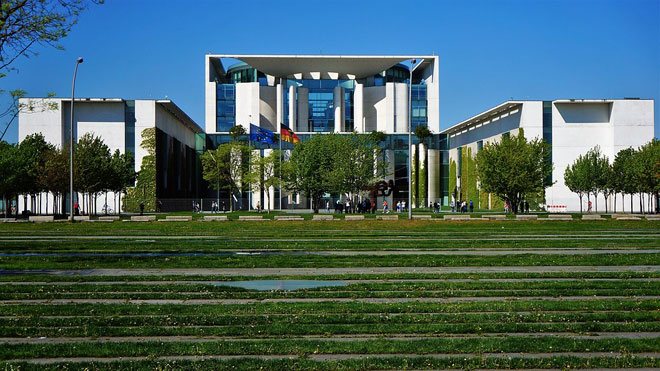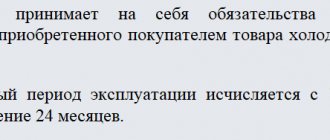When resolving issues related to the legality of any construction work, the main emphasis is on the legislative provisions prescribed in Art. 51 of the Town Planning Code of Russia. In 2020, some changes were made to the law that must be taken into account if construction or reconstruction work is planned. The updated article regulates the rules of development for private, individuals and legal entities.
Where and in what order can you obtain a document permitting urban planning work?
In order to begin the legal implementation of a reconstruction and construction project, it is necessary to contact the local government authorities that are considering these issues of the territorial area in which the development site is located.

The developer must provide the following package of documents to the district administration or the multifunctional center for the provision of municipal and government services:
- Statement.
- Developer's passport.
- A document confirming ownership of land.
- A project for a future structure indicating the procedure for carrying out the planned work.
- Site plan showing the location of the new building.
- No claims regarding design work from other shareholders with shared ownership of the territory in question.
- Consent of all copyright holders when it comes to reconstruction of the building. This legal paper is not required if we are talking about an apartment building in accordance with the provisions of clause 6.2, part 7, art. 51 Civil Code of the Russian Federation.
The period for reviewing the provided documentation usually ranges from 3 to 10 days.
Validity period of the issued document and the right to transfer it to another person
If the go-ahead to carry out capital actions has been received, then the permission will be valid for the entire period of work. The only exception is the private residential sector. Here, the administration’s decision will be considered valid for 10 years from the date of its issuance.
If there is a need to sell an unfinished object, the documentation issued for its construction, transferred to the new owner in the process of concluding a transaction for the sale and purchase of unfinished construction, will be considered valid.
What do the comments to Art. 51 Civil Code of the Russian Federation
The comments to the article indicate that major repairs, construction and reconstruction of all types of facilities can be carried out by private and legal entities, as well as individual entrepreneurs. In this case, the planned direction of use of the building must be taken into account.
On what conditions is an application from the owner of the plot considered?
Consideration of the possibility of carrying out any work on the site can take place according to one of two options:
- with determination of the location of the structure;
- without indicating the location of the building.
It may also be necessary to provide evidence that hygiene standards will be met.
Comments on individual paragraphs of Article 51
- clause 3. A permit cannot be issued if there are no rules for land use and development. The exception is objects of federal or local significance. Their construction and reconstruction do not require the issuance of the specified document. This right also applies to capital construction structures located on sites for which there are no town planning regulations.
- clause 4. Permission to carry out reconstruction and construction work must be issued by local government bodies, which are located at the location of the land plot provided for development. The exception is the objects specified in Part 5 and Part 6 of this article, as well as other federal laws.
- clause 7. Documents or their copies specified in clauses 1, 2, and also 5 of part 7 of the article are requested at the request of state bodies, local government bodies, whose competence is to consider this issue within a period not exceeding 3 working days from the moment of filing an application for a construction permit.

Commentary on Article 747 of the Civil Code of the Russian Federation
1. Comment. Art. specifies the enshrined clause 1 of Art. 740 of the Civil Code is the responsibility of the customer “to create the necessary conditions for the contractor to perform the work.” One of these conditions is the provision of land to the contractor for construction. To do this, the customer must acquire real or liability rights to this site in the manner prescribed by law. In particular, in accordance with Art. 30 of the Land Code, the provision of land plots from lands in state or municipal ownership is carried out exclusively at auctions, with the exception of cases specified in the law.
In accordance with the comment. As a rule, it is the customer who is responsible for the legal purity of the land plot, including the possibility of using it for the construction of the corresponding facility.
2. The transfer of a land plot (construction site) to the contractor is formalized by a special act, the date of signing of which is usually associated with the beginning of the construction period. A delay in handing over the site may serve as grounds for revising the terms of the contract regarding the construction period and price.
To avoid disputes, it is advisable to define in the contract all the necessary parameters of the construction site. During the entire construction period, the construction site is under the control of the contractor, who is obliged to ensure the necessary order on it.
3. To create the necessary conditions for construction for contractors, customers often assume counter-responsibilities, an approximate list of which is contained in clause 2 of Art. 747. From this list it is clear that we are talking about such actions of customers that can be carried out by them without much damage to themselves and lead to cheaper construction. So, if the customer has his own access roads, then it is certainly advisable that the contractor can also use them when delivering construction materials, equipment and other property he needs to the site.
However, by agreement with the contractor, the customer can assume the performance of any responsibilities, even if not related to his existing capabilities and reserves.
4. From paragraph 3 of Art. 747 it follows that all services provided by the customer are subject to payment by the contractor. True, the words that payment create the impression that payment may not be made if the contract does not provide for it. In reality, the parties can only agree that the cost of the customer’s services is included in the cost of construction work, or formulate a general estimate taking into account the cost of the services provided by the customer. However, this does not make the customer’s services cease to be reimbursable with all the ensuing consequences.
Judicial practice under Article 51 with examples
Most often in judicial practice, cases regulated by Article 51 of the Civil Code of the Russian Federation on unauthorized development are considered. Often the refusal to accept a constructed or restored facility by a commission or local administration is challenged in court. If we are talking about filing an application for a permit after the construction of a structure, then such court cases end with recognition of the correctness of the administration’s actions.
Important! By law, a document giving the right to set up or carry out a renovation project can only be issued before work begins. If the construction of the structure is completed, then it will be impossible to obtain the specified legal paper.
Example 1. In 2020, an application was submitted to the Moscow Arbitration Court from a company with the status of an OJSC regarding the recognition of the reconstruction of the building they carried out as legal by the local administration. This company insisted on issuing a permit for the reconstruction after it had already been completed.
The defendant argued his refusal by the fact that in addition to the questions that arose regarding the project, there was a violation of the rules for submitting an application on time, since it was submitted at the time of completion of work on the project.
Having considered the reasons for the refusal, the court recognized its legality based on the following facts:
- the rules for the provision of project documentation by the JSC were violated;
- the deadline for submitting the application corresponded to the period when the reconstruction had already been completed.
As a result, the administration's actions were recognized as legal.
Example 2. In the process of planning construction and reconstruction work, the contractor submitted an application to the district administration to obtain the appropriate permit. The company received a refusal due to the fact that it did not provide consent for the work of all rights holders to the premises located in an extension to a non-residential building.
The head of the administration was guided by the provisions prescribed in Part 7 of Art. 51 of the City Code. The legal act states that when submitting an application, documentary evidence of obtaining consent from all owners of the property is required.

Upon careful examination of the case, it turned out that the company that planned to implement the project was in fact its sole legal copyright holder. In accordance with this fact, a decision was made on the illegality of the actions of the district administration.
Important! If the developer is the sole legal holder of the building being reconstructed or constructed, then a document on the owners’ consent to carry out the work is not required in the package of legal papers provided.
When considering cases in judicial practice concerning Art. 51, the latter decision can be made by the court of appeal. In this case, all the nuances of the case under consideration will be taken into account.
Organizational functions
The organizational functions of the developer include:
- carrying out engineering surveys on the territory belonging to him;
- development of project documentation;
- obtaining a construction permit;
- directly organizing and coordinating the construction of the facility (on our own or by third-party organizations).
This follows from the provisions of paragraph 3 of Article 47, paragraph 5 of Article 48, paragraph 1 of Article 51 and paragraph 3 of Article 52 of the Town Planning Code of the Russian Federation.
The developer must have an architectural design. This document is required to obtain a building permit.
The project must be completed in accordance with the architectural and planning assignment (clause 1, article 3 of the Law of November 17, 1995 No. 169-FZ).
The developer receives the architectural and planning assignment based on the following documents:
- construction applications;
- documents certifying his ownership of the land plot where construction of the facility is planned. The developer can also build an object on leased territory. In this case, along with a certificate of registration of land ownership, it is necessary to submit permission from the owner of this plot to develop project documentation. The presence of such a permit will confirm that the owner of the site does not object to the construction of a new facility on its territory by the tenant.
A building permit will be issued only if its architectural design meets the requirements of the urban planning plan of the land plot.
This follows from the provisions of paragraph 1 of Article 51 of the Town Planning Code of the Russian Federation.
Construction permits are issued by federal, regional or local authorities (clause 4 of article 51 of the Town Planning Code of the Russian Federation). In addition to the architectural design, to obtain a permit, title documents for the land plot, a town planning plan for the land plot, as well as other documents provided for in paragraph 7 of Article 51 of the Town Planning Code of the Russian Federation are required.
Attention: if a developer organizes construction without the appropriate permit, the territorial branch of Rostechnadzor may fine him or suspend his activities.
The fine ranges from 500,000 to 1,000,000 rubles. Suspension of an organization's activities is possible for up to 90 days.
In addition, officials of the organization (for example, its head) may be held administratively liable for this violation. The fine ranges from 25,000 to 50,000 rubles.
This is stated in Part 1 of Article 9.5 of the Code of the Russian Federation on Administrative Offences.
Moreover, despite the fact that the obligation to obtain a construction permit lies with the developer, an organization (technical customer, contractor or subcontractor) that directly carried out construction and installation work on the site without a construction permit may also be held administratively liable. The fact is that before carrying out such work, they are obliged to make sure that the developer, involving them in construction work, has the appropriate building permit.
This is stated in the resolution of the Plenum of the Supreme Arbitration Court of the Russian Federation dated February 17, 2011 No. 11.
A construction project created without the appropriate permit is recognized as an unauthorized construction. Ownership of it cannot be registered. This follows from the provisions of Article 222 of the Civil Code of the Russian Federation. Moreover, such an object is subject to demolition at the expense of the developer (clause 3 of article 25 of the Law of November 17, 1995 No. 169-FZ).
However, there are cases in which it is not necessary to obtain a building permit. These include:
- construction of objects that are not capital construction projects (for example, kiosks, sheds);
- construction of structures for auxiliary use (for example, temporary household buildings);
- other cases provided for by law (for example, if the construction work planned by the developer will not entail changes in the external architectural appearance of the existing development and will not affect the reliability and safety characteristics of buildings, structures and utilities).
This is stated in paragraph 17 of Article 51 of the Town Planning Code of the Russian Federation and paragraph 2 of Article 3 of the Law of November 17, 1995 No. 169-FZ.
Organizational functions also include deciding who will directly carry out construction work. The construction can be carried out by the developer himself (on his own), or by third-party organizations attracted by him - contractors (clause 3 of Article 52 of the Town Planning Code of the Russian Federation).
Thus, an object can be constructed in one of two ways:
- contracting – when the construction of the facility is carried out entirely by contractors;
- by the developer’s own resources - when the construction of the facility is carried out by the developer himself with or without the involvement of subcontractors.
To construct a facility by contract, the developer enters into a construction contract with contractors. The integral parts of such an agreement are:
- technical documentation, which indicates the composition and scope of construction work, as well as the requirements for these works;
- an estimate that determines the cost of contract work if the cost of work is not determined in a fixed contract price.
This follows from the provisions of Articles 740, 743, 746 of the Civil Code of the Russian Federation.
Detailed guidance on drawing up construction contracts is given in letter No. BF-558/15 of the Ministry of Architecture, Construction and Housing and Communal Services of Russia dated June 10, 1992.
If the construction contract between the developer and the contractor does not provide for the contractor’s obligation to perform construction work independently, then the contractor may involve third parties to perform certain construction works. In this case, the contractor is recognized as the general contractor, and the third parties involved by him are recognized as subcontractors. In this case, the general contractor bears responsibility to the developer for the implementation of the entire complex of works on the construction of the facility, including work performed by subcontractors. This is stated in Article 706 of the Civil Code of the Russian Federation.
The direct contractor of construction work, whether a developer, general contractor or subcontractor, is required to have a certificate of admission to the work he performs, issued by a self-regulatory organization. This is the requirement of paragraph 2 of Article 52 and paragraph 1 of Article 55.8 of the Town Planning Code of the Russian Federation. To obtain such a certificate, the direct contractor of construction work must be a member of a self-regulatory organization (clause 6 of article 55.8 of the Town Planning Code of the Russian Federation).
The list of construction works for which a certificate of admission is required is established by order of the Ministry of Regional Development of Russia dated December 30, 2009 No. 624. Work that is not included in the list can be performed by any person without a special certificate or permit (clause 2 of article 52 Town Planning Code of the Russian Federation).
If the developer (contractor) has certificates of approval only for certain types of construction work, then to perform other work (for which there are no corresponding certificates), he can attract a contractor (subcontractor) who has the necessary certificate (clause 3.2 of Article 52 of the Urban Planning Code RF).
Attention: if a developer (contractor) carries out construction work without an admission certificate, the territorial branch of Rostechnadzor may fine him.
The fine ranges from 40,000 to 50,000 rubles. (Part 1 of Article 9.5.1 of the Code of Administrative Offenses of the Russian Federation).
In addition, for carrying out activities without the appropriate permit (certificate of admission), a construction organization can be liquidated by a court decision (paragraph 3, paragraph 2, article 61 of the Civil Code of the Russian Federation). This is stated in the information letter of the Presidium of the Supreme Arbitration Court of the Russian Federation dated December 5, 1997 No. 23.
Also, for carrying out construction activities without the appropriate permit (certificate of admission), criminal liability may be applied to the persons responsible for this (for example, the head of the organization). This is possible if the activity without a certificate is related to the extraction of income on a large scale (more than 1,000,000 rubles) or especially large amounts (more than 6,000,000 rubles).
If construction activities without an admission certificate are associated with the extraction of income on a large scale, then criminal liability for this is provided in the form of:
- fine up to 300,000 rubles. (or in the amount of wages or other income of the guilty person for a period of up to two years);
- compulsory work for a period of 180 to 240 hours;
- arrest for a period of four to six months.
This is stated in paragraph 1 of Article 171 of the Criminal Code of the Russian Federation.
If construction activities without an admission certificate are associated with the extraction of income on a particularly large scale, then criminal liability for this is provided in the form of:
- fine from 100,000 to 500,000 rubles. (or in the amount of wages or other income of the guilty person for a period of one to three years);
- imprisonment for a term of up to five years with or without an additional fine.
This follows from the provisions of paragraph 2 of Article 171 of the Criminal Code of the Russian Federation.










